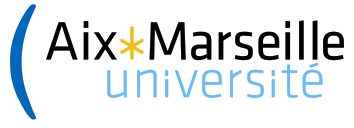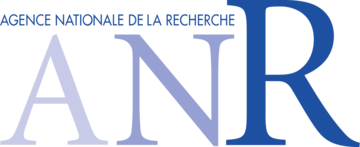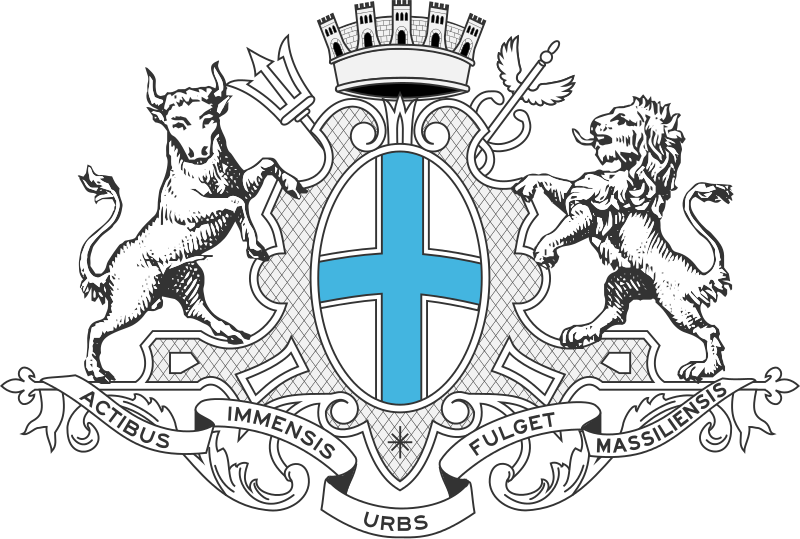
Automata & WAN 2021
12-17 July 2021
Marseille, France
- AUTOMATA 2021: 12-14 July
- WAN 2021: 14-17 July
- Joint celebration of Eric Goles’s 70th birthday: 14 July
- Contact:

The events will take place both virtually and physically, hosted at CIRM (see Venue).
The list of participants (onsite and remote) can be found on the CIRM website.
AUTOMATA 2021
27th International Workshop on Cellular Automata and Discrete Complex Systems
Papers
- invited and regular papers: OASIcs proceedings
- exploratory papers: HAL collection
Invited speakers
- Maximilien Gadouleau (Durham University, UK)
- Luca Priogioniero (Università degli Studi di Milano, Italy)
- Siamak Taati (American University of Beirut, Lebanon)
- Ilkka Törmä (University of Turku, Finland)
Description
AUTOMATA 2021 is the twenty-seventh workshop in a series of events established in 1995.
These workshops aim to:
- Establish and maintain a permanent, international, multidisciplinary forum for the collaboration of researchers in the field of Cellular Automata (CA) and Discrete Complex Systems (DCS).
- Provide a platform for presenting and discussing new ideas and results.
- Support the development of theory and applications of CA and DCS (e.g. parallel computing, physics, biology, social sciences, and others) as long as fundamental aspects and their relations are concerned.
- Identify and study within an inter- and multidisciplinary context, the important fundamental aspects, concepts, notions and problems concerning CA and DCS.
The AUTOMATA series is the official annual event of IFIP WG 1.5, the Working Group 5 (on Cellular Automata and Discrete Complex Systems), of the Technical Committee 1 (on Foundations of Computer Science), of the International Federation for Information Processing (IFIP).
Scope (not exhaustive):
- dynamical, topological, ergodic and algebraic aspects of CA and DCS
- algorithmic and complexity issues
- emergent properties
- formal languages
- symbolic dynamics
- tilings
- models of parallelism and distributed systems
- synchronous versus asynchronous models
- phenomenological descriptions and scientific modelling
- applications of CA and DCS
Program committee
- Alonso Castillo-Ramirez (Universidad de Guadalajara, Mexico) — co-chair
- Pierre Guillon (CNRS & Université d’Aix-Marseille, France) — co-chair
- Nathalie Aubrun (CNRS & Université Paris-Saclay, France)
- Jan Baetens (Ghent University, Belgium)
- Pedro Balbi de Oliveira (Universidade Presbiteriana Mackenzie, Brazil)
- Tullio Ceccherini-Silberstein (Università del Sannio, Italy)
- Alberto Dennunzio (Università di Milano Bicocca, Italy)
- Jeremias Epperlein (Universität Passau, Germany)
- Terry Farrelly (University of Queensland, Australia)
- Nazim Fatès (INRIA & Université de Lorraine, France)
- Enrico Formenti (Université de Nice-Côte-d’Azur, France)
- Anahí Gajardo (Universidad de Concepción, Chile)
- Janko Gravner (University of California Davis, US)
- Nataša Jonoska (University of South Florida, US)
- Jarkko Kari (University of Turku, Finland)
- Johan Kopra (University of Turku, Finland)
- Martin Kutrib (Universität Giessen, Germany)
- Kenichi Morita (University of Hiroshima, Japan)
- Kévin Perrot (Université d’Aix-Marseille, France)
- Trent Rogers (University of Arkansas, US)
- Véronique Terrier (Université de Caen-Normandie, France)
- Guillaume Theyssier (CNRS & Université d’Aix-Marseille, France)
- Thomas Worsch (Karlsruhe Institute of Technology, Germany)
- Reem Yassawi (Open University, UK)
Steering committee
- Pedro Balbi de Oliveira (Universidade Presbiteriana Mackenzie, Brazil)
- Jarkko Kari (University of Turku, Finland)
- Hector Zenil (Karolinska Institute, Sweden)
- Alonso Castillo-Ramirez (Universidad de Guadalajara, Mexico)
- Jan Baetens (Ghent University, Belgium)
Important dates (all in 2021)
- Submission deadline full papers:
February 19thMarch 4th - Notification of acceptance full papers:
March 31thApril 13th -
Final version full papers:
April 13thApril 26th - Submission deadline exploratory papers: May 5th
- Notification of acceptance exploratory papers: May 19th
-
Final versions of exploratory papers: May 26th
-
Registration: as soon as you can
- Conference: July 12-14
WAN 2021
Workshop on Automata Networks
Here is the booklet containing the program and abstracts for WAN talks.
Description
The workshop will be held on 14-17 July, starting with a day in common with Automata 2021, which will be the opportunity to celebrate Eric Goles’s 70th birthday.
This workshop aims at bringing together, favoring exchanges and working together, through oral scientific presentations and joint thematic working sessions, the community that studies automata networks, from the perspective of mathematics and computer science.
This will notably be the place to take stock of recent advances in the field, and to identify open questions and inspire the community with promising theoretical and applied research directions.
Scientific context
From a general point of view, automata networks are discrete dynamical systems informally defined as sets of entities (the automata) – whose local states are discrete – that interact with each other over discrete time.
In that way, cellular automata are particular automata networks so that the automata (the cells) are distributed into a regular topology, namely a cellular space.
From a more applied point of view, automata networks are often considered and studied as finite dynamical systems.
In this framework, they have been central in many works related to the modelling of complex systems, as communication networks, particle interaction networks, regulation networks, and social networks.
Whatever vision we have of automata networks, their study is a booming field, both in the most theoretical aspects and in those closer to applications.
This is because they are fundamental for two reasons (mainly):
- their definition, and its intrinsic simplicity, which integrates the just necessary and allows you to focus on the essence of interactions (transmission of information);
- their ability to capture behavioral richness (and associated complexities) of the systems they model.
Among the central themes at the fundamental and applied levels are:
- links between static and dynamical characteristics;
- organisation of time and updating;
- importance of feedback and (non-)convergence;
- convergence time and behavioral optimization;
- simulation;
- modularity / compositionality.
Of course, this list is not exhaustive.
All oral contributions are made on the basis of invitations from the scientific committee. Participation to the workshop is free of charge but requires prior registration (more information will be available soon).
Invited speakers
- Maximilien Gadouleau (Durham University, UK)
- Matthew Macauley (Clemson University, US)
- Elisa Tonello (Freie Universität Berlin, Germany)
- Jorge G. T. Zañudo (Broad Institute of MIT and Harvard, US)
Scientific committee
- Julio Aracena (Universidad de Concepción, Chile)
- Pierre Guillon (CNRS Marseille, France)
- Kévin Perrot (Université d’Aix-Marseille, France)
- Élisabeth Remy (CNRS Marseille, France)
- Adrien Richard (CNRS Sophia Antipolis, France)
- Lilian Salinas (Universidad de Concepción, Chile)
- Sylvain Sené (Université d’Aix-Marseille, France) — chair
- Guillaume Theyssier (CNRS Marseille, France)
Organization committee
Contact: 
- Pablo Arrighi
- Amélia Durbec
- Nathanaël Eon
- Guilhem Gamard
- Pierre Guillon
- Etienne Moutot
- Kévin Perrot
- Antonio E. Porreca
- Élisabeth Remy
- Sylvain Sené
- Guillaume Theyssier
Sponsors











